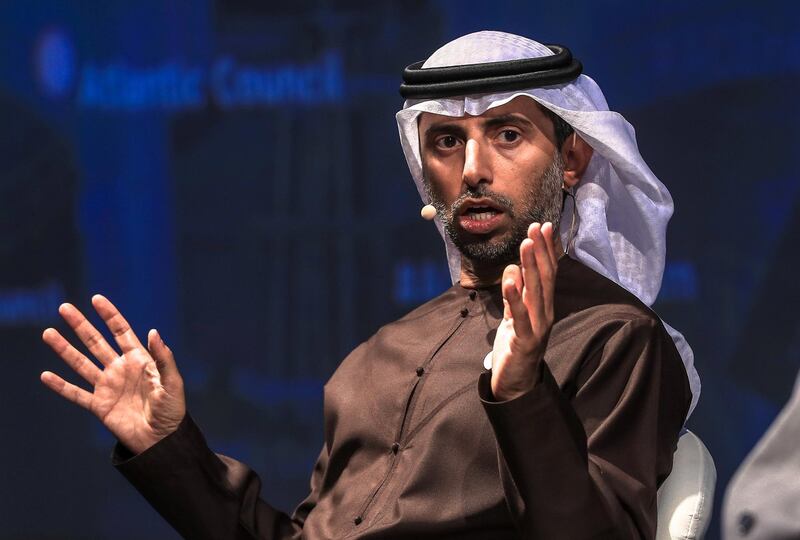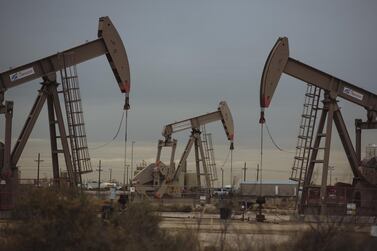The UAE has met, if not "exceeded", its compliance with the Opec and non-Opec production cuts for February, as it continued to make voluntary output adjustments, the energy minister tweeted on Sunday.
In line with the OPEC & Non-OPEC agreement, UAE compliance for the month of February 2019 will meet, if not exceed, it's obligations. This will help to bring balance and stabilty to the global oil market
— سهيل المزروعي (@HESuhail) March 10, 2019
"We will continue to deliver on the Opec & non-Opec commitment for voluntary production adjustments, until the global market is re-balanced," said Suhail Al Mazrouei.
We will continue to deliver on the OPEC & Non-OPEC commitment for voluntary production adjustments, until the global market is re-balanced.
— سهيل المزروعي (@HESuhail) March 10, 2019
The UAE’s output at the end of January, according to secondary sources cited by Opec, was 3.078 million barrels per day.
Opec producers led by Saudi Arabia and members outside the alliance led by Russia, agreed in December to restrict production by 1.2 million bpd for six months starting January. The curbs were a response to the dramatic fall in oil prices, which had surged to a three-year high of $86.29 per barrel in October, only to plunge by 40 per cent in December.
Rising US production and more supply in the markets due to the earlier efforts by Opec to boost production, pushed the prices lower. Brent crude reached $65.74 per barrel at the end of last week.
Saudi Energy Minister, Khalid Al Falih, said separately to Reuters on Sunday, the US and China would continue to lead oil demand globally. It was also "too early" for the producers undertaking output cuts to reverse policy at Opec's meeting in April, he said.
Global demand would grow by around 1.5 million bpd, said Mr Al Falih.
Allocations by Saudi Aramco, the kingdom's state oil producer, would remain at 9.8 million bpd.
"Aramco is finalising their April allocations today or tomorrow, so we will know more on Monday. But my expectation is that April is going to be pretty much like March," Mr Al Falih told Reuters.
The commitments from the Opec producers come amid a continued surge in US production, which hit a record high of 12 million bpd towards mid-February. The US Energy Information Administration had forecast last year that US crude will soar past the 12 million bpd-mark in the second quarter of 2019.
Rising US production will run counter to efforts underway by the sovereign producer alliance to keep prices moderately high, even as the US administration led by President Donald Trump presses for lower prices.
Mr Trump tweeted end of February asking Opec to “please relax and take it easy” and that the world could not afford a “price hike”.
Opec production for February, however, was down by more than two million bpd relative to October, noted UBS in a recent report which cautioned of further tightening of the oil markets over the coming months.
"US crude production is believed to have been stable in recent months and oil demand is improving on a seasonal basis, all of which lends credence to our forecast that the oil market will tighten further,” the report said.
The Swiss lender maintained its view that benchmark Brent would move into the range of $70 to $80 per barrel over the coming months, as efforts by the Opec+ alliance and disruption in production in Opec member Venezuela tighten the market.








